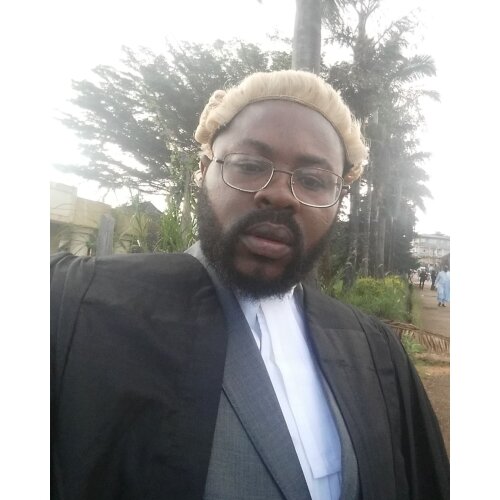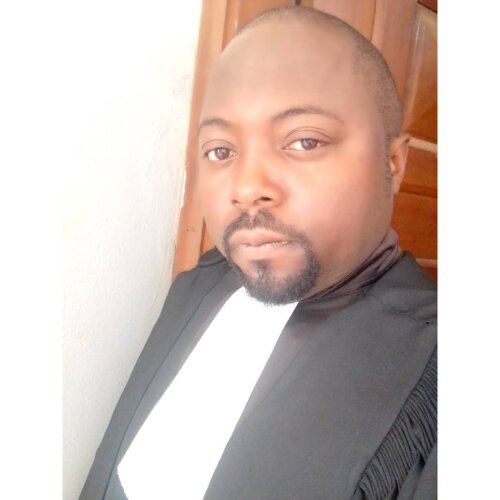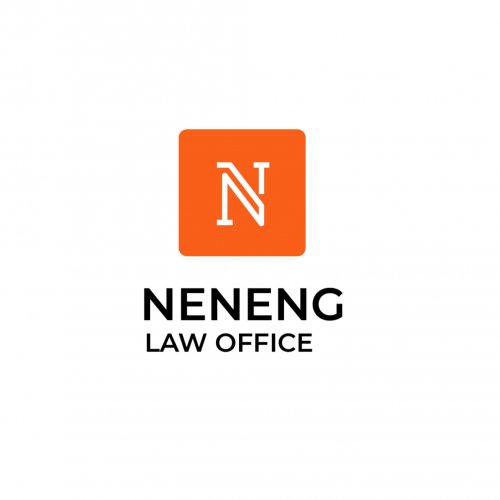Best Legal Document Lawyers in Cameroon
Share your needs with us, get contacted by law firms.
Free. Takes 2 min.
Or refine your search by selecting a city:
List of the best lawyers in Cameroon
About Legal Document Law in Cameroon
Legal document law in Cameroon encompasses the regulations and procedures regarding the creation, execution, and validation of documents that have legal significance. These documents can include contracts, wills, deeds, and various agreements that require specific formalities to ensure their enforceability. The legal framework governing these documents is rooted in both civil law, influenced by French legal principles, and common law, reflecting British legal traditions. Understanding the intricacies of these systems is essential for ensuring that documents are legally binding and meet all necessary legal criteria.
Why You May Need a Lawyer
People often require legal assistance with legal documents for various reasons, including:
- Drafting Contracts: To ensure clarity and legal enforceability, and to protect interests in business transactions or employment agreements.
- Estate Planning: In preparing wills and trusts to manage assets and support beneficiaries after death.
- Property Transactions: To handle the complexities of buying or selling property, ensuring compliance with laws and regulations.
- Resolving Disputes: When disagreements arise over the validity or interpretation of legal documents.
- Company Formation: To meet the legal requirements and formalities necessary for starting a business in Cameroon.
Local Laws Overview
Cameroon's legal landscape for legal documents is shaped by key elements, including:
- Dual legal system incorporating aspects of both civil law and common law.
- Registration requirements for certain types of documents, such as property deeds and business contracts, to ensure legal validity.
- The necessity of notarization for some legal documents, particularly those related to property and succession.
- Legislation like the Uniform Act on General Commercial Law provides guidance on business-related documents.
- Use of both French and English as official languages, which can impact the drafting and interpretation of legal documents.
Frequently Asked Questions
What are the requirements for a contract to be valid in Cameroon?
A contract must involve competent parties, mutual consent, a lawful object, and a consideration (something of value) to be considered valid in Cameroon.
Do I need a lawyer to draft a will?
While not mandatory, having a lawyer draft your will is advisable to ensure it meets all legal requirements and accurately reflects your wishes.
How are disputes over legal documents typically resolved?
Disputes are resolved through negotiations, mediation, or legal proceedings in the appropriate court. Lawyers play a key role in navigating these processes.
Are verbal agreements enforceable in Cameroon?
Verbal agreements can be enforceable if they meet contract law criteria, but they are more challenging to prove, so written contracts are preferred.
What is the role of a notary in legal document law?
Notaries authenticate, witness, and certify documents, adding an official layer of validation essential for certain legal processes, especially in property and succession matters.
Do legal documents need to be in both French and English?
Documents should be in the language of the jurisdiction where they will be enforced. However, dual language translations can be beneficial for broader accessibility.
What is the legal age to enter into a contract in Cameroon?
The legal age to enter into a contract is generally 18 years, which is the age of majority, although there are exceptions depending on the type of contract.
How can I protect my business with legal documents?
Utilize contracts, non-disclosure agreements, and employment agreements to safeguard your business interests. Legal guidance ensures these documents comply with local laws.
Is registration needed for all types of legal documents?
Not all documents require registration; however, it is essential for property, company incorporation, and certain other specified documents to be legally enforceable and recognized.
Can international contracts be governed by Cameroonian law?
Yes, parties can choose Cameroonian law to govern an international contract, provided it does not conflict with public policy or mandatory local laws.
Additional Resources
Consider reaching out to the following resources for further assistance:
- The Cameroon Bar Association: For professional legal services and lawyer referrals.
- Ministry of Justice: Offers insights on regulatory frameworks and legal documentation requirements.
- Local Chambers of Commerce: Provides guidance on business-related legal documentation.
- Notary Offices: For notarization and certification of documents as required by Cameroonian law.
Next Steps
If you require legal assistance with a legal document, consider the following steps:
- Identify Your Needs: Clearly define what you need from a lawyer, such as contract drafting or dispute resolution.
- Research Lawyers: Look for lawyers experienced in legal document law in Cameroon. Utilize the Cameroon Bar Association for guidance.
- Consultation: Arrange consultations with potential lawyers to discuss your case and ascertain if they fit your needs.
- Prepare Documentation: Gather all necessary documents and information relevant to your legal matter ahead of your consultation.
- Understand Fee Structures: Discuss and understand fee structures to avoid surprises and choose a lawyer within your budget.
Lawzana helps you find the best lawyers and law firms in Cameroon through a curated and pre-screened list of qualified legal professionals. Our platform offers rankings and detailed profiles of attorneys and law firms, allowing you to compare based on practice areas, including Legal Document, experience, and client feedback.
Each profile includes a description of the firm's areas of practice, client reviews, team members and partners, year of establishment, spoken languages, office locations, contact information, social media presence, and any published articles or resources. Most firms on our platform speak English and are experienced in both local and international legal matters.
Get a quote from top-rated law firms in Cameroon — quickly, securely, and without unnecessary hassle.
Disclaimer:
The information provided on this page is for general informational purposes only and does not constitute legal advice. While we strive to ensure the accuracy and relevance of the content, legal information may change over time, and interpretations of the law can vary. You should always consult with a qualified legal professional for advice specific to your situation.
We disclaim all liability for actions taken or not taken based on the content of this page. If you believe any information is incorrect or outdated, please contact us, and we will review and update it where appropriate.
Browse legal document law firms by city in Cameroon
Refine your search by selecting a city.















